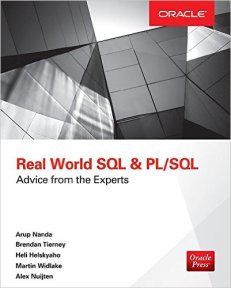Friday Philosophy – Is the CBO becoming way too complex? October 19, 2012
Posted by mwidlake in Friday Philosophy, performance.Tags: explain plan, perception, performance
20 comments
I was at the SIOUG annual conference in Slovenia this week (and a very good conference it was too) and I was watching a presentation by Christian Antognini about how the CBO learns by it’s mistakes. This was of course mostly about adaptive cursor sharing and cardinality feedback. Chris was also able to share a few tid-bits about 12c enhancements in this area. I can’t go into details, but basically it looks like the CBO is going to not only enhance those two features but there is a new one where the CBO can change the plan on the fly, as the same query progresses.
As I watched the presentation I found I was in two minds about this. Part of me was thinking “Yes, these features do help in the CBO realising it has chosen a poor plan and improving things for the next execution – and it will get better at it”. The other part was thinking “Oh dear, yet another source of confusion and of performance of queries changing when ‘nothing has changed’“.
It also solidified an idea I have for a new presentation, about how what you see in the execution plan may well not be what is actually executed. ie there are optional bits in there that do not get run at execution time, depending on the results of prior steps.
But I digress. What I ended up wondering at the end of Chris’s talk was this. Is the CBO getting just too complex? It is all very good that extra abilities are being added so that there is a better chance of a good plan being chosen in the first place and the various ways we can control the choice of the plan grows and grows. But we are long past the point when you could write even a simple sql statement and know what the plan will be before you explain it – let alone run it, check the plan and then run it again a few minutes later and be sure the plan will be the same.
Why does this bother me? For three reasons:
1) Performance will not be stable, so the user experience will not be consistent – and so they will be unhappy. Users will generally be happy if they run a report and it takes one minute, if it takes one minute each time. If it takes one minute and then it takes 5 seconds, they want it to always run in 5 seconds, else they fell cheated or that the system is broken. In fact, I am pretty sure a user will be happier if a report always takes 2 minutes rather than it take 5 seconds or 40 seconds but they never know which! (So long, that is, that they never, ever see it run in less than 2 minutes).
2) If performance of a particular SQL statement is absolutely crucial, I need to know how the CBO can and probably will satisfy it so that I can work that into my solution. Otherwise I am reduced to trying out informed options (or maybe random changes 🙂 ) in order to find the optimal solution – and I cannot be sure that the plan won’t suddenly swap later unless I fix the plan. OK, it might swap to be faster, but I only notice when it swaps to be a lot slower.
3) I’ve said this before, but I am starting to really wonder how anyone new to this starts understanding oracle performance tuning any more. Reading blogs and books about how Oracle works and what impacts the CBO teaches you a lot about what is possible but it only makes sense when you do little tests and proofs of concepts. ie you actually run simple examples and see what happens. But with all these options, considerations and now on-the-fly alterations to plans by the CBO, it is very confusing. Even I, after 20 years of doing performance tuning on and off, am constantly finding myself looking at relatively simple SQL and having to work out why the plan is as it is and satisfying myself that it has not changed. I started with the CBO when it was a lot simpler and I’ve been introduced to the complexities gradually, as they have been introduced, so learning about it has been easier for me.
Perhaps I should not worry about this. I mean, the CBO is getting better at doing what it does, that is good. It is getting hard for those younger and smarter than me to learn about it, so my career is protected. And there is more stuff to talk about so I can keep going to conferences and talking about them.
And with that happy idea, I’m off to start the weekend. Where was that cork screw?

